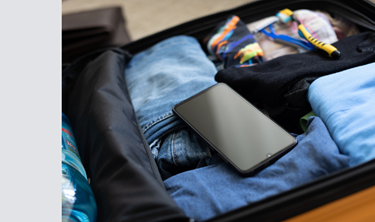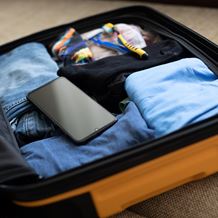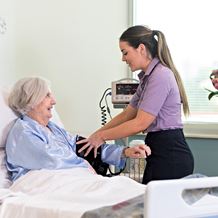Getting ready
Getting ready
Getting ready for your hospital visit
Going into hospital can be a stressful time for you and your family. Planning for your visit will help you understand what to expect during your stay and help put you at ease.
Your doctor and our hospital teams are there to inform you about your procedure and help you and your family understand your care plan. Your care and recovery are our highest priority.
To prepare for your hospital stay, you will need to go through an admissions process. Depending on your procedure and medical history, you may require a preadmission consult with a nurse, either in person or by phone.
The admissions process is our way of finding out everything we need to know about you to assist in your treatment and recovery. It’s also a time for you to ask questions about your procedure and hospital stay.
Health Fund Update
Learn More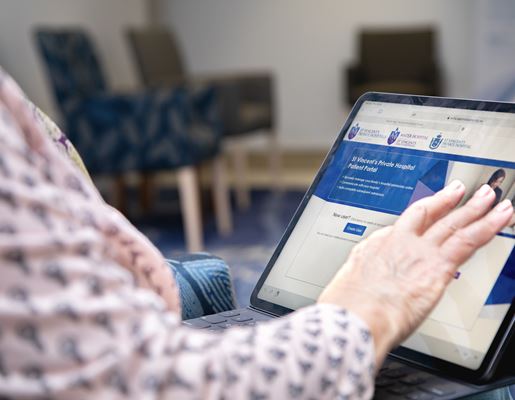
Registration
Prior to your hospital stay, you will need to complete a hospital registration form. This form asks questions about your medical history, medications, health cover, and contact details.
You can complete the form online via Online admissions.
Please complete all sections of the form to the best of your ability and at least 3-5 days before you are due to arrive at hospital. If unsure, ask a relative or carer for help. 'A preadmission nurse will review your registration form and either send you an SMS or phone you.
Pre-admission consult
Depending on your procedure and your medical history, you may be asked to make a preadmission appointment which will be either over the phone or in person (depending on your hospital). At this time a nurse will go through your registration form and answer any questions about your admission. This is a good time to discuss issues such as:
- Pre-existing health conditions or allergies
- Your current medications
- Dietary requirements
- Any concerns you may have
Giving consent
You will be asked to give your written consent before undergoing any treatment, anaesthetic or surgery. If you are a minor (below the age of 18), consent by a parent, guardian, or next of kin is required.
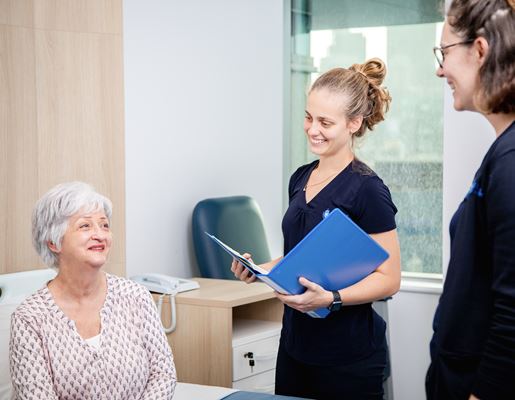
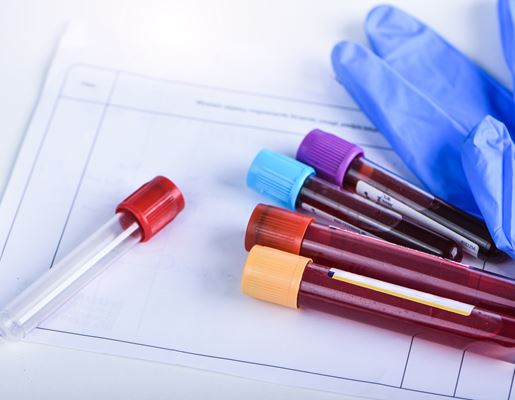
Blood Transfusions
Some people may require blood while in hospital. If it’s possible you will need a transfusion, you will need to give your consent. Please let your doctor know if you have had any problems with blood products in the past.
If, for any reason, you’re not comfortable consenting to blood transfusions, it’s important to discuss this with your doctor and make sure it’s recorded on your consent form before you sign it.
Questions to ask your specialist
Your specialist’s office should provide you with information about the date you will be going into hospital and what time to arrive on the day. Your doctor will also discuss your procedure with you and allow you to ask any questions. Some important questions to ask include
- What is involved in my procedure and what are the risks?
- How many procedures of this type do you perform each year?
- Is the procedure needed at this time or can it wait?
- How long will I stay in hospital for?
- What costs are involved in my procedure?
- What preparation is required before my procedure?
- Do I need to make any changes to my medications?
- Is there anything I can do to improve the outcome?
- What type of help will I need when I go home?
- Are there any activities I should avoid after surgery, for example, driving?
- Will I need a follow-up appointment?
Some procedures require you to follow specific instructions beforehand, such as fasting (no food or drinks). It’s important to follow these instructions to prevent your procedure being delayed or cancelled.
Further preparation for your hospital stay
General Items
- Your mobile phone
- Credit or debit card to settle your account
- Doctors’ letters, reports, notes and consent forms
- Relevant X-rays and scans
- Medication prescriptions
- An up-to-date list of your current medications from your GP or pharmacist, including the dosage and how often you take each medication
Please bring your current prescription medications in their original labelled pharmacy containers. Place these in a separate plastic bag, not in your luggage. Also, bring any vitamins and over-the-counter medications you take.
Identification and insurance information
Please bring your Medicare card.
If you have any of the following, please bring them too:
- Health fund card
- Department of Veterans Affairs card
- Safety Net card
- Pension card/Health Care Card
- WorkCover approval letter, number and claim details
- Accident or Third-Party Insurance claim details
- Comfortable nightwear, dressing gown and personal toiletries (if you’re staying overnight)
- Slippers or comfortable shoes (if you’re staying overnight)
- Any physical and mobility aids such as eyeglasses, hearing aids, dentures, walking aids or splints
- Overnight patients should bring bags with wheels to assist us in moving your luggage. We also recommend you use a small, ‘carry-on’ sized bag, no more than 10kg.
Only bring enough money to cover the cost of your excess payment and other small items.
Please leave heat packs, hot-water bottles and electric blankets at home. We don’t allow their use because of the risk of burning, rupture and injury.
We can’t accommodate large luggage items — please bring a small bag only (cabin sized luggage as it needs to fit in the cupboards in your room to meet Work Health & Safety standards).
If you require additional items for your stay, arrange with a family member, carer, or next of kin to bring these to you.
If you feel unwell in the lead up to your procedure, such as a cold or fever, please contact your doctor as soon as possible.
You should eat a normal meal the evening before your admission to hospital, unless your doctor tells you otherwise. You shouldn’t consume any alcohol at this time, and you should not smoke for at least 12 hours prior to your procedure. (Some procedures require that you stop smoking for a longer period beforehand)
On the day of admission
Please shower before you arrive at the hospital. Dress in loose, comfortable clothing and please do not wear jewellery (including wedding rings, earrings and piercings), perfume, powders, creams, hairspray or makeup.
The hospital or your doctor will advise you of an arrival time. Arriving early does not mean you will be admitted earlier, since patient admissions go in order of the surgeon’s operating list.
Day procedures only
Day procedures are minor procedures that are performed under general or local anaesthetic. These are short and do not require an overnight stay.
If you are having a day procedure, please arrange for a responsible adult to collect you afterwards who can stay with you overnight. If you do not arrange this, your procedure may be cancelled.
- Hospital costs
- Costs from health care providers
- Medication costs
Your hospital costs include those associated with your hospital stay, including accommodation, theatre fees, and any prostheses (artificial replacement of body parts). You can find out the estimated cost of your hospital stay before you arrive by speaking to your doctor.
For hospital costs, we will submit a claim to your health fund (if you have one) on your behalf. You will, however, be required to cover any excess costs or co-payment. This is the portion of the estimated hospital expenses that are not covered by your health fund, and which you will need to pay before your admission to hospital.
Costs from health care providers
In addition to the fees charged by the hospital, you may receive separate accounts from the other health care providers involved in your care. These may include:
- Your surgeon
- Your anaesthetist
- The surgical assistant
- Other consultants
- Pathology companies
- Medical imaging
- Allied health professionals (such as physiotherapists)
- The hospital pharmacy
For some hospitals you may need to submit these separate accounts to Medicare and your private health fund.
Medication costs
You may require medication/s when being admitted to hospital.
All medications prescribed during your stay are included in your hospital costs, except for non-PBS high cost medications. You may be charged for these if they are not covered by your health fund.
You must pay separately for all medications prescribed before your hospital admission or after you leave hospital. Please speak to your doctor or pharmacist if you have any queries.
If you hold any type of concession card, please bring this with you to help keep any medication costs to a minimum.
Non-health fund patients
If you do not have private health insurance and intend to pay the full cost of your hospital stay, we will provide you with an estimate of your hospital costs. This will include your hospital stay and procedure only. You will need to speak to your doctor and all others involved in your care for a complete overview of their costs.
You will need to pay all hospital costs before your hospital admission. We reserve the right to refuse admission if your payment is not received.
The Estimate of Expenses will be based on the item numbers / type of procedures and any prostheses required for surgery.
If your surgeon requires any additional prostheses or the item numbers / type of procedure changes, there may be additional fees that are payable prior to discharge. Change to item numbers can alter the fees significantly.
Overseas insured
Patients who are covered by an international insurance fund with whom the hospital has an agreement will be required to provide an approval prior to admission.
All other patients covered by non-contracted international insurance funds will be required to pay in full prior to or on admission.
WorkSafe/third party claims
If you have a compensation claim, such as WorkSafe or a third-party claim, please confirm with your Case Manager or insurance company that they will cover the cost of your hospital admission.
You’ll need a written approval from the WorkCover insurer or third-party insurer prior to your admission.
How to pay
On admission day you can pay your hospital fees using:
- Major credit cards (except Diners and American Express)
- EFTPOS
- Bank cheques
We’ll take an imprint of your credit card at admission to cover any incidentals or other items not covered by your private health fund. The imprint will be held securely until your account has been finalised when you leave hospital. Payment options may differ at each site and get in touch to find out more.
- Arranging a hospital room with free TV, local telephone calls.
- Organising any necessary aids for when you leave hospital
- Facilitating referrals to Veterans Home Care, community nursing, rehabilitation and respite care
If you live more than 100 km's away, you are eligible for a travel and accommodation subsidy. For information, contact the Isolated Patient Travel and Accommodation Scheme office on 1800 478 227 or www.iptaas.health.nsw.gov.au
If you wish to organise for family / carers to stay nearby, see below to assist in finding accommodation nearby.
- St Vincent’s Private Hospital Sydney- Accommodation Options
- St Vincent’s Private Hospital Griffith- Accommodation Options
- The Mater, North Sydney- Accommodation Options
If you live more than 100kms away you are eligible for a travel and accommodation subsidy. For information, contact Victorian Patients Transport Assistance Scheme on 1300 737 073 or Victorian Patient Transport Assistance Scheme (VPTAS) | health.vic.gov.au. For interstate patients, there are patient transport assistance schemes to help with the cost of getting to and from hospital - call the Pre-admission Clinic on (03) 9411 7358.
If you wish to organise for family / carers to stay nearby, see below to assist in finding accommodation nearby.
- St Vincent’s Private Hospital East Melbourne, Fitzroy, Kew, Werribee - Accommodation Options
The Patient Travel Subsidy Scheme (PTSS) provides financial support for travel and accommodation for eligible patients needing to travel to access specialist medical services. If you live in Queensland, and have been referred by a clinician to a specialist medical service that is not available at your local public hospital, you may be eligible for subsidy. You can access more information on PTSS here: The Patient Travel Subsidy Scheme
If you wish to organise for family / carers to stay nearby, see below to assist in finding accommodation nearby.
- St Vincent’s Private Hospital Brisbane- Accommodation Options
- St Vincent’s Private Hospital Northside- Accommodation Options
- St Vincent’s Private Hospital Toowoomba- Accommodation Options
Manage your hospital admission online
Register

